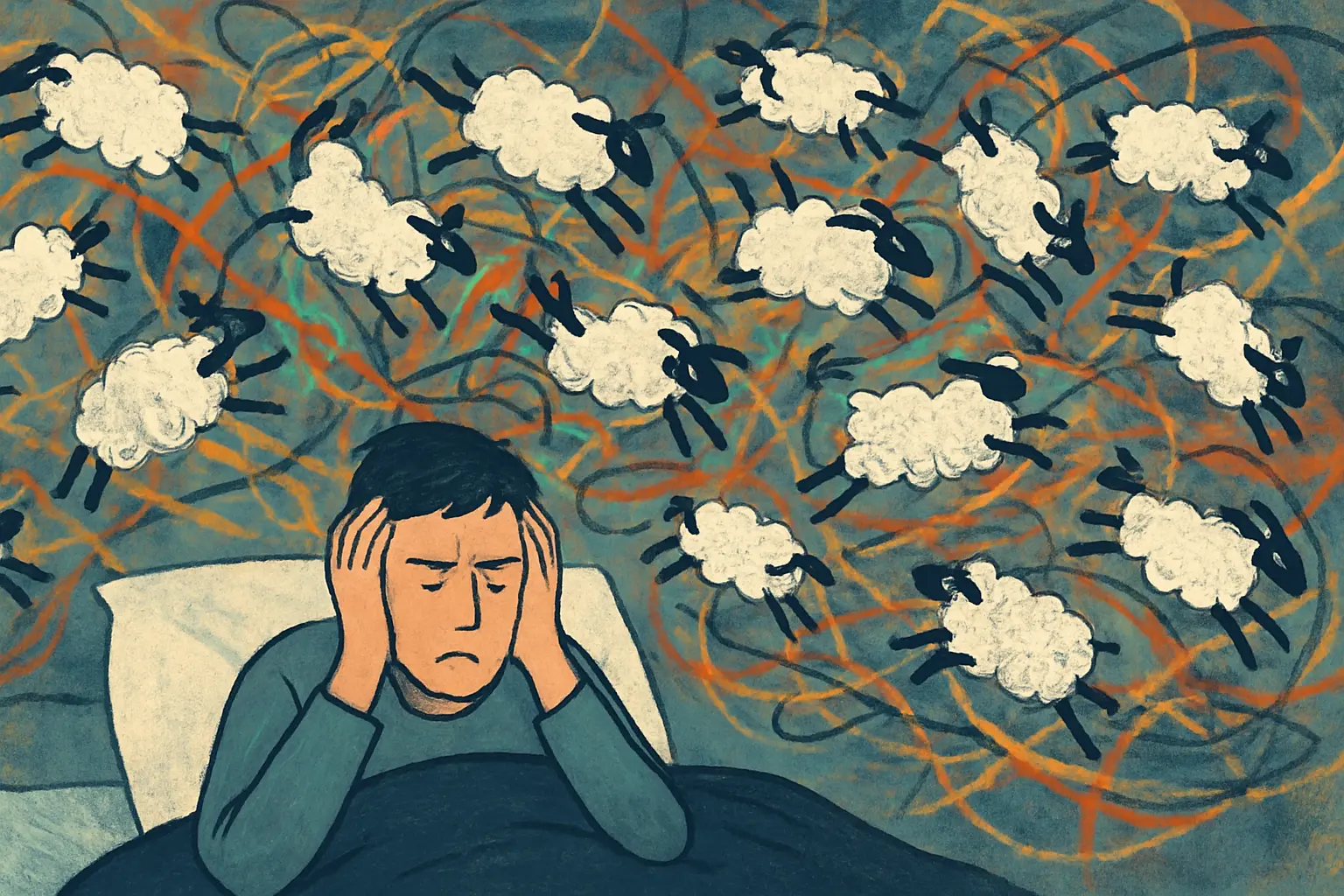Definition
Sleep hygiene refers to evidence‑based behaviors and environmental conditions that support healthy sleep timing, duration, and continuity.
Pathophysiology
- Poor hygiene (late caffeine/screen exposure/irregular schedule) elevates cortical and autonomic arousal, delays melatonin secretion, and fragments sleep architecture.
Diagnosis
- Clinical history and questionnaires (PSQI, sleep diary) identify maladaptive routines, light exposure patterns, and stimulant use.
Treatment
- Core practices: consistent schedule, wind‑down routine, morning light exposure, evening blue‑light reduction, cool/dark/quiet bedroom, limit caffeine after midday.
Prevention
- Habit stacking with daily anchors (wake time, meals, exercise); environmental defaults (blackout curtains, device curfew, bedside paper book) to sustain adherence.
Related Articles
- Perfect Bedtime Routine
- How Blue Light Disrupts Melatonin and Sleep
- Sleep Physiology: Deep Sleep Mysteries
Sleep Hygiene Tips: Daily Routines for Better Rest
Good sleep doesn’t happen by accident. Sleep hygiene refers to the habits and environment that support consistent, restorative sleep. Simple adjustments to your daily routine can make a noticeable difference in how rested you feel.
Key Sleep Hygiene Practices
-
Maintain a consistent sleep schedule
Go to bed and wake up at the same time every day, even on weekends. This helps regulate your circadian rhythm and improves sleep quality. -
Create a calming bedtime routine
Reading, gentle stretching, or a warm shower can signal your body that it’s time to sleep. Avoid stressful tasks or work emails before bed. -
Limit exposure to blue light
Screens from phones, tablets, and computers suppress melatonin, the sleep hormone. Try dim lighting or apps that reduce blue light in the evening. -
Optimize your sleep environment
- Keep the bedroom dark, quiet, and cool (around 65–68°F / 18–20°C)
- Use blackout curtains or eye masks
- Consider white noise or sleep sound apps for better rest
-
Watch your diet and lifestyle
- Avoid caffeine after 2 p.m.
- Limit alcohol, which can fragment sleep
- Stay hydrated, but avoid large liquids before bed
-
Exercise regularly
Physical activity promotes deep sleep, but avoid vigorous exercise close to bedtime as it can temporarily increase alertness. -
Track your sleep
Sleep quality improvement apps like SnailSleep can monitor snoring, REM sleep, and sleep interruptions, providing actionable insights.
Real-Life Example: James’ Sleep Transformation
James, a 38-year-old accountant, often struggled with insomnia. His nights were interrupted by stress and screen time. After implementing a structured sleep hygiene routine — consistent bedtime, dim lights, journaling, and using a sleep tracking app — he noticed he fell asleep faster, woke up less often, and felt more energized throughout the day.
Additional Tips for Deep, Restorative Sleep
- Avoid heavy meals before bed
- Practice relaxation techniques like meditation or deep breathing
- Keep a sleep journal to identify patterns and triggers
- Consider natural sleep remedies like chamomile tea or lavender essential oils
Related Articles
- Sleep and Mental Health: How Restorative Sleep Protects Your Mind
- Why Light Pollution Is Stealing Your Sleep (and How to Fight Back)
- Tracking Your Sleep with Technology: A Step-by-Step Guide

